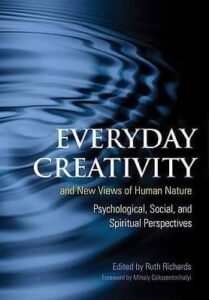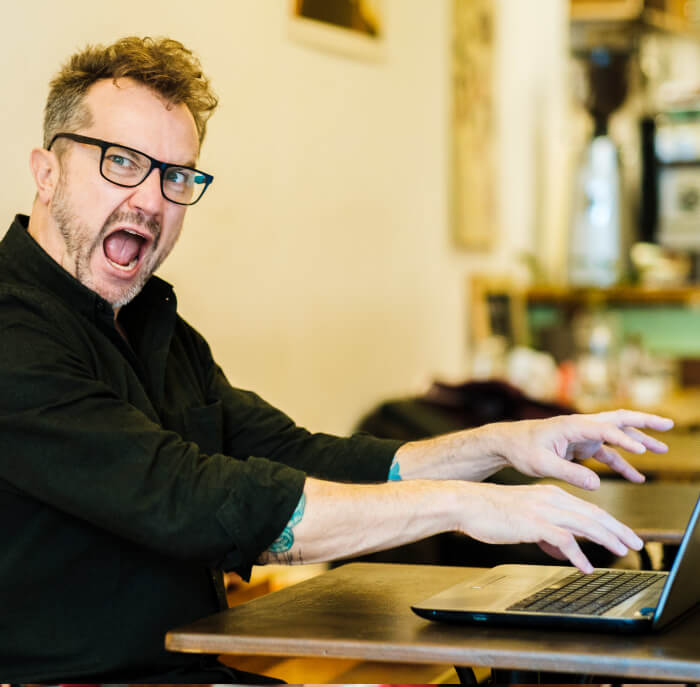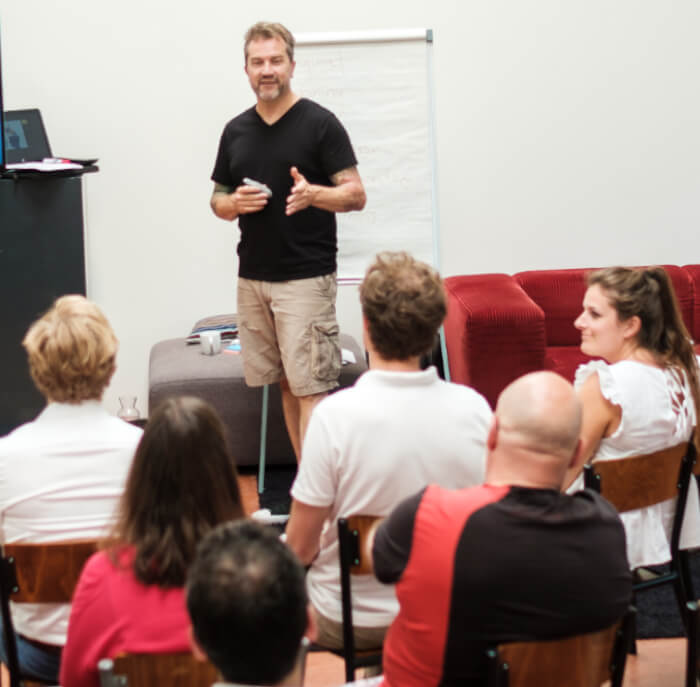
However, if you accept, as I do, that everyone is creative and that creativity is a fundamental human urge that makes us who and what we are, how do you account for this madness? If creativity causes madness and we are all creative, why are we not all mad?
Quite simply because it seems more than possible that it is the better-developed creativity in some people that enables them to create and produce DESPITE their madness, rather than suffering from madness caused by their creativity.
One of the key mental skills required to enhance creativity is the ability to TOLERATE AMBIGUITY.
This manifests in any number of ways when one is being creative. It may mean that the end result of an experiment is far from certain, or unanticipated. It may mean that some market research creates more questions than it answers or that an analysis of the productivity issues at work reveal deeper, more structural problems.
On a personal level though, this ambiguity can be seen as a kind of role-playing where creative people are able, in their imaginations and for a limited period of time, to become another kind of person. Like a psychopath, or a gambler, or a boring accountant or… anything at all. In order to extract interesting conclusions from these situations, creative people are able to invest a large level of detail and believability in these scenarios.
From the outside, this may appear unstable and divergent, but it is more than possible that this kind of deliberate processing of alternative points of view and states of mind is what keep these highly creative types from tipping over the edge of uncertainty into madness…. In other words, were they not able to be creative, they would, in fact, go mad.
From my own experience, I know that I write a lot of poetry that can easily be seen as bleak, depressing and cynical. And yes, it is true that I have had to deal with depression as a fact of my adult life. However, I also believe that these exercises in extremes and alternatives have also created space for me to safely explore the alternatives, process them, come to understand better what I am going through and thereby work through it and not succumb to it.
A 1995 study links creative writing to improved health… not just mental, but physical too. The study, ‘Emotion, Disclosure and Health’ by JW Pennebaker in Washington DC as quoted by the American Psychological Association and featured in ‘Every Day Creativity ‘ by Ruth Richards found that ‘Conscious, controlled, deliberate processing of emotions through writing is different from non-conscious processing called emotionality. Although both can yield health improvements, the first also leads to lowered reactivity and improved cognition function.’
The study goes on to find that students who shared more of the emotional problems through writing, made fewer doctor’s visits and, after an initial dip, become happier over the longer term. They had stronger immune responses and their blood pressure and heart rates dropped.
It would seem to suggest that the creative capacity, therefore, gives us a tool for dealing with the complex ambiguities of modern existence that might ruffle our mental states, instead of causing ruffled mental states.
It therefore also seems quite possible that the societal denial of creativity as inherent to all people is what is causing the rise in mental illness across the board, not creativity.
So next time someone claims there is a thin line between madness and genius, you might want to add that it is creativity that keeps us on the genius side and keeps the madness at bay.
Plenty of inspiration, stories, facts and research in the articles I publish every week. I write about creative events, thinking and research… anything that has creativity hidden in it. Read the articles…

Sign up for my fortnightly newsletter and receive FREE creativity tips and help with the challenges you currently face. A simple way to keep up to date with the world of creativity.
Creativity will save the world. I share tips, tricks and techniques for creative thinking based on scientific research and personal experience. There is no problem creativity cannot solve. More about speaking…

Like follow, donate: